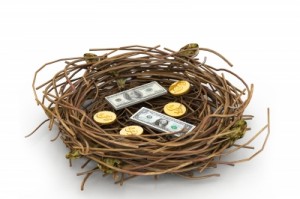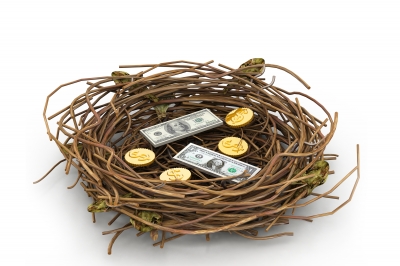Financial planning is the key to survival in a tough economy. The success to family finances is dependent on saving every nickel and dime there is to spare. But what do you do with that money once the piggy bank is full? A wise finance-savvy couple will seek to maximize the return on investment while minimizing risk. One low risk alternative is to take that money to the bank and turn it into a Certificate of Deposit (CD). Folding savings into a CD earns a higher yield on the investment than the average savings account. Here are some other advantages of CDs.
1. CD’s Offer Flexible Terms

Having flexibility with family finances is incredibly important. Families need the proper mix of long-term and short-term investments. Unexpected incidents arise all the time and a family who has locked their money up in illiquid long-term investments will be in trouble. While the term of the CD you invest in is not flexible, there are a variety of terms available to you is. A term can last anywhere from a few months to ten years.
Consider how flexible your family needs to be with the investment and choose a term that fits those needs. If you intend to by a new car in two years, lock the down payment into a CD to gain interest off the money and keep it out of reach. When the CD matures you withdraw the money and buy the car with an even larger down payment, lowering monthly payments at the same time (preferably paying all cash with no payments).
Using a method called “laddering” allows you to always have some money available. To create a CD “ladder” you don’t invest all your money at once. Suppose you have $12,000 to invest in CDs you could just throw it all in one big CD (but what if you have an emergency?). Or you could create a ladder by investing $1,000 in a 1 year CD the first month, $1,000 in a 1 year CD the second month, etc. At the end of the year the first CD will automatically renew for another year. If at anytime you need the money you will always have one CD coming available within the month and you just notify the bank not to renew. This prevents paying an early withdrawal penalty if you need the money for an emergency.
2. CD’s Have Low Risk
One of the main reasons families begin investing their savings into a CD is because CD’s run a low risk of loss. Rates are locked in for the CD term in most cases, and the money is not put into an investment that runs the risk of losing value like stocks or even mutual funds. There is little to no risk of losing money when it is placed in a CD since bank CD’s are guaranteed by the Government and the value is fixed.
Although there is little risk of losing your principle, investing in a CD still has some variables. Investing in long term CD’s means running the risk of paying a penalty if you need the money prior to maturity and if you lock in a low interest rate and rates go up you will be stuck with the lower rate. On the plus side, if rates go down you will continue to receive the higher rate for the entire term of the CD.
Investing in short term CD’s means running the risk of interest rates falling and you get less and less as the rates go down. Money already saved will not be lost, but potential earnings could be. You need to assess your family’s needs to determine which is best for you. Currently interest rates are historically low and are more likely to rise than fall.
3. CD’s Offer Short Term Gains
Think of a CD as a “locked in” savings account. You open it for a given period of time, put the money in, and don’t have to think about it again until the term ends. At that point, the money is rolled into a new CD, with a new interest rate.
Before investing in a CD, find out what the best CD rates are in your area. Though they are generally competitive, not all banks offer the same rate for the same term investment. Do a little research to find out more before investing.
Once you have saved up enough money in CD’s it is time to consult a financial planner to determine other ways to invest in your future.
See Also:
- Investing in Your Future: As Easy as 1, 2, 3
- Certificates of Deposit (CD) Rates
- Inflation-Busting Tips To Help You Get The Most from Your Money
- What Are Good Investments?
Resources:
Image courtesy of Renjith Krishnan / FreeDigitalPhotos.net

